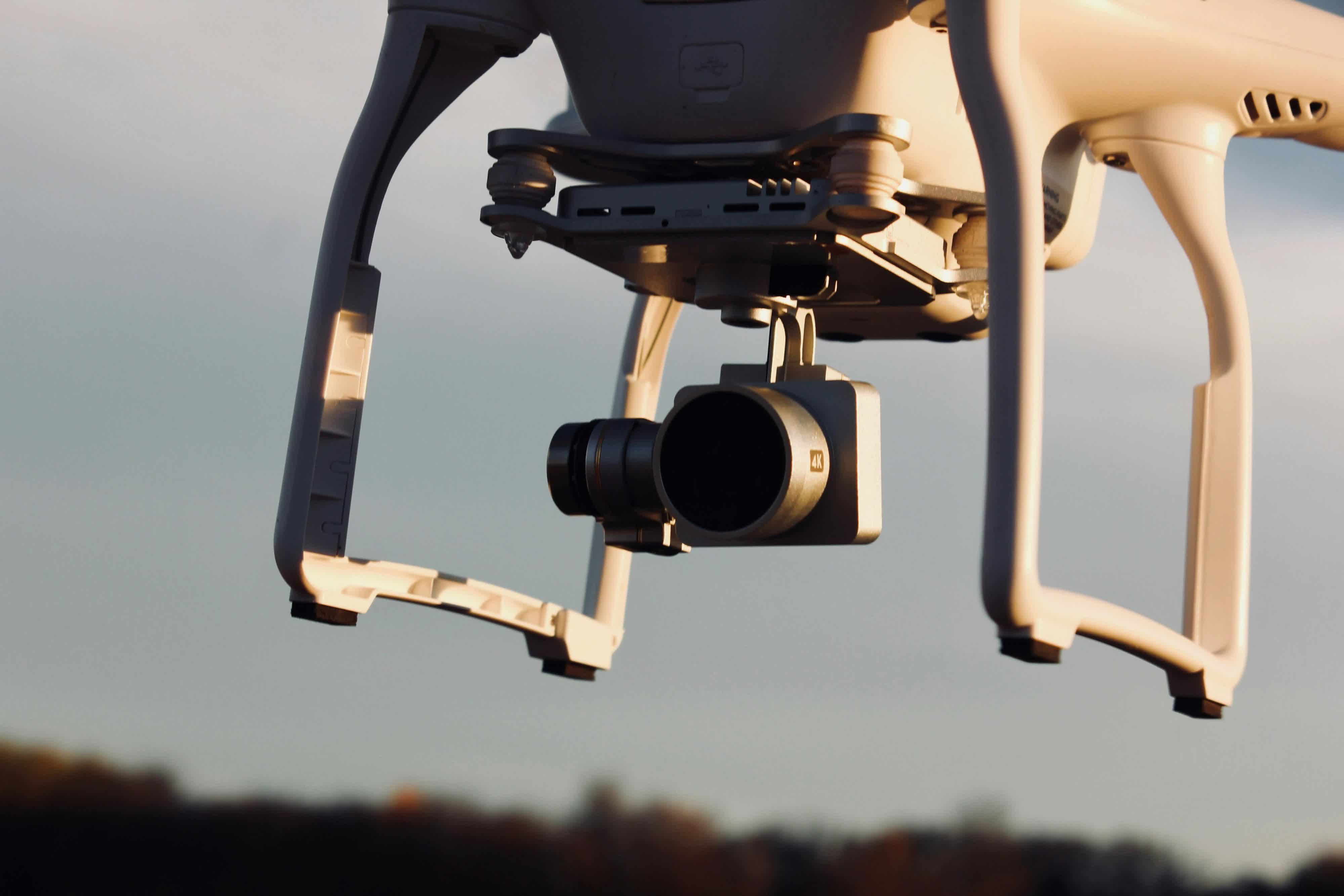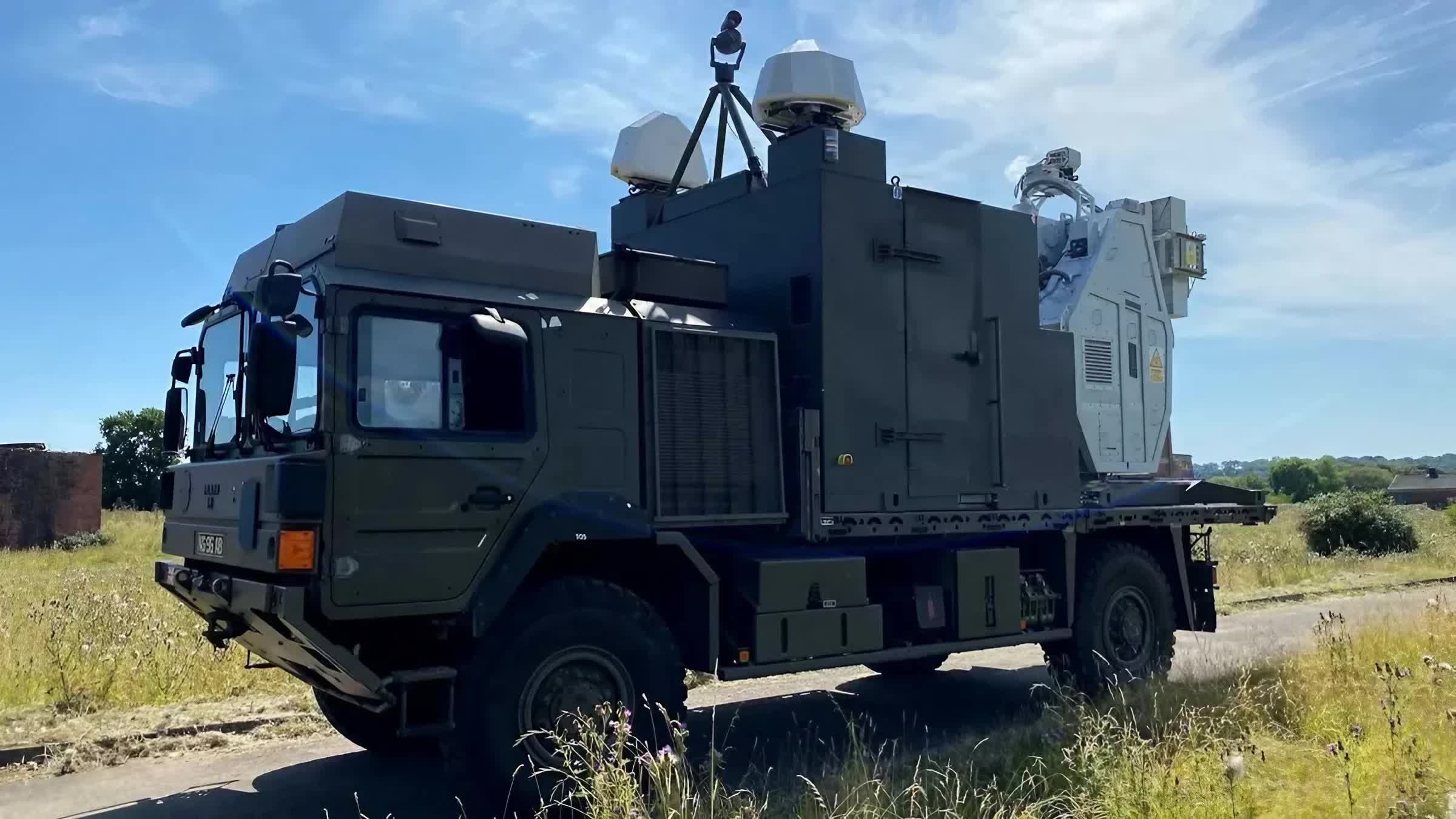Forward-looking: The UK Ministry of Defence has revealed it is testing a futuristic weapon capable of taking down drones using nothing but radio waves. Remarkably, each “shot” costs less than a “pack of mince pies.” The Radio Frequency Directed Energy Weapon (RFDEW) has been in development for some time, but British soldiers recently had the chance to put it through its paces.
The Army’s Royal Artillery Trials and Development Unit, in collaboration with 7 Air Defence Group, successfully conducted a live firing trial in West Wales. This marked the first use of the system against Uncrewed Aerial Systems (UAS) by the British Armed Forces. Unlike laser-based energy weapons that use concentrated light beams, the RFDEW disables drones and missiles by bombarding them with high-powered radio frequencies, effectively frying their internal electronics.
Laser-based weapon systems have proven their efficacy against individual drones and other aircraft, but they face challenges when dealing with swarms of drones. This is where the RFDEW has shown superior potential.

During the trials, the Army’s air defense teams successfully detected, tracked, and engaged multiple drone targets at distances of up to a kilometer. Impressively, each engagement cost only about 10p (13 cents) per shot.
The RFDEW trials mark a big milestone not just for the UK’s directed energy initiatives, but for rapidly advancing military tech in general. It seems to check all the boxes – the press release by the UK government highlights that it’s highly automated so it can be operated by a single person, it’s precise, it’s relatively low-cost, and it packs the punch to neutralize threats on land, in the air, or even over water.
The last bit is important, suggesting that it can be used against threats beyond aerial drones and missiles. The system is also flexible in terms of deployment and can be fitted onto any military vehicle.

The technology was developed by British defense firm Thales, in partnership with QinetiQ, Teledyne e2v, and others. Its development supported over 135 skilled engineering jobs across the UK.
Government bigwigs are understandably hyped about the successful trials. Defence Minister Maria Eagle called it “another step forward for a potentially game-changing sovereign weapon” that will help the UK maintain a “crucial advantage against the emerging threats we face.”
However, deploying the RFDEW operationally is still likely some way off. There’s likely still plenty more testing and fine-tuning needed before radio wave assaults become standard British military doctrine.


